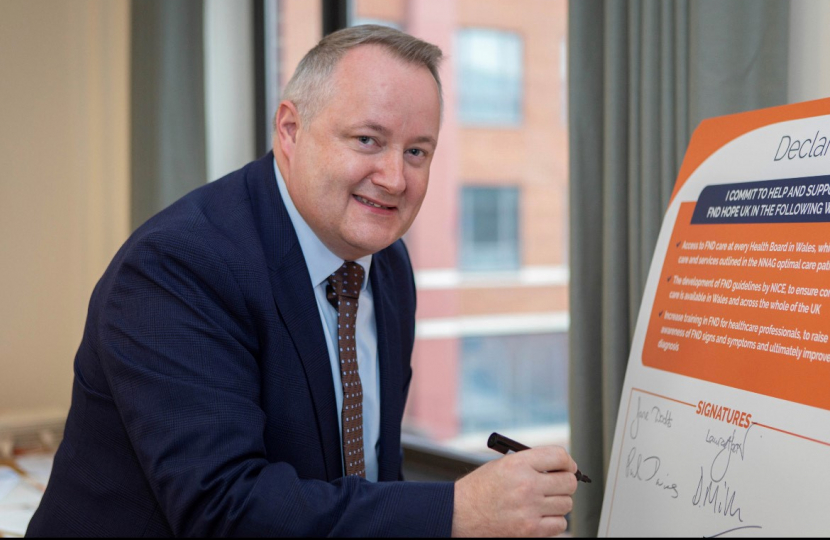
Last month I joined FND Hope UK’s inaugural Senedd Awareness Day to discuss the action needed to deliver better care and support for those living with FND in Wales.
FND is a problem with the functioning of the nervous system. Unlike many well-known neurological conditions, FND is not caused by structural damage in the brain or nervous system - instead, the issue is a problem with how the brain and body send and receive signals, like letters being sent to the wrong address, despite having the correct label.
This has historically made FND very difficult to diagnose and is a key factor driving under-recognition of the condition. But just like other neurological disorders, the symptoms of FND are very real.
Common FND symptoms include seizures, paralysis, speech difficulties and motor dysfunction. They can appear suddenly, progress rapidly and often wax and wane.
People with FND often present across the NHS with different symptoms, arriving in A&E or seeing multiple specialists, meaning poorly managed FND can have a vast impact on NHS spend and capacity.
The most common misconception is that patients are in control of some or all of their symptoms. The patient does not consciously produce functional symptoms. A patient with conscious control of their symptoms has a different diagnosis such as Feigning, Malingering, or Munchausen Syndrome.
Very few effective treatment plans exist. Physical Therapy is the most effective form of treatment with a goal of re-introducing proper movement and motor control. The most common treatment plan is Cognitive Behavior Therapy (CBT), which yields a 13% success rate.. CBT is most effective for patients who have a known psychological connection to their symptoms. Lack of understanding the condition has negatively influenced treatment and care.
Many people living with FND need to reduce or give up work entirely.
Given that it is estimated that FND affects between 50,000 and 100,000 adults and young people in the UK, this is a much bigger issue than many people realise.
FND Hope UK held the inaugural Senedd Awareness Day to raise awareness of the condition and discuss what can be done to better support the FND community in Wales.
At the Awareness Day, I signed up to the charity’s declaration, committing to support steps towards:
1.Access to FND care at every Health Board in Wales, which reflects the care and services outlined in the National Neurosciences Advisory Group (NNAG) optimal care pathway
2. The development of FND guidelines by NICE to ensure consistent care is available across the whole of the UK
3.Increase training in FND for healthcare professionals, to raise awareness of FND signs and symptoms and ultimately improve diagnosis and care
I am delighted to have learnt more about FND Hope UK’s work towards a dedicated FND care pathway at every UK neuroscience centre and have the opportunity to hear directly from people living with FND about the impact the condition has.
For further information about FND and the support available to those living with FND and their families visit: HOME FND Hope - FND Hope International



